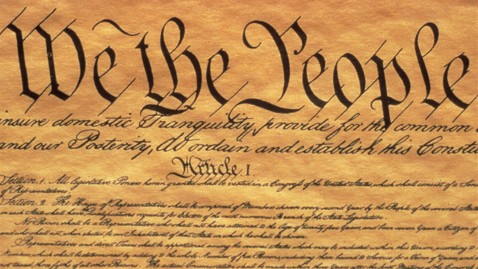IRS Asks for Reading List, Tea Party Group Sends Constitution

(Image Credit: Visions of America/UIG via Getty Images)
When Marion Bower decided to start her tea party organization in 2010, she didn't know that it would take nearly two years for the Internal Revenue Service to approve her request for tax-exempt status.
The Ohio woman also did not expect that providing information about the books her group read would be part of the application process.
"I was trying to be very cordial, but they wanted copies of unbelievable things," Bower told ABC News today. "They wanted to know what materials we had discussed at any of our book studies."
She ultimately sent one of the books, "The Five Thousand Year Leap," promoted frequently by Glenn Beck, to the IRS official handling her tax-exempt request in Cincinnati. She also sent a paperback copy of the Constitution.
"They wanted a synopsis of all the books we read," Bower said. "I thought, I don't have time to write a book report. You can read them for yourselves."
Bower, 68, said she did not want to cause trouble or be argumentative with the IRS, so she patiently responded to their questions about her group, American Patriots against Government Excess (PAGE). She said the group in Fremont, Ohio, about 45 miles from Toledo, was formed as an educational group.
Her group's request was granted in March 2012, about two years after they originally applied. She said she believed the requests were onerous, including requests for agenda and minutes of their regular meetings and other documents.
"I felt like, 'My goodness, what in the world is going on here?'" Bower said. "Is this ever going to end?"
Bower's group would have raised a red flag for the IRS simply because of its name, according to the agency's own admission.
In 2012, the IRS says that it flagged groups with the words "Tea Party" or "Patriot" in their names for additional scrutiny. Bower's group fit the ticket.
"They wanted copies of our blog. They said they had already taken copies of our website. They wanted a list of all of our officers, what we do at our meeting, how our board is made up," Bower said.
The IRS says that it is part of its normal oversight responsibility to request additional information to "develop" applications that need heightened scrutiny because tax-exempt groups might only engage in certain amounts and certain kinds of political activity.
But Bower said her group consisted of volunteers who routinely passed out copies of the constitution at parades, and had informational meetings on anything from the health care law to disaster preparedness.
"We thought it would be a very simple process," Bower said. "It wasn't a simple process."